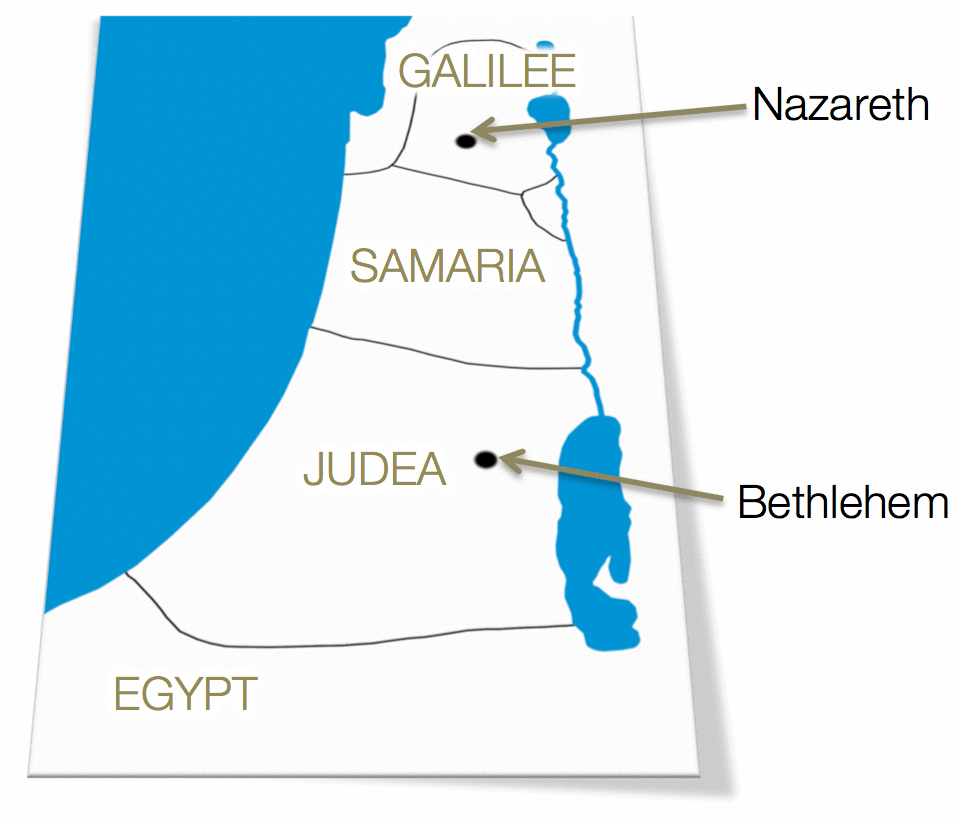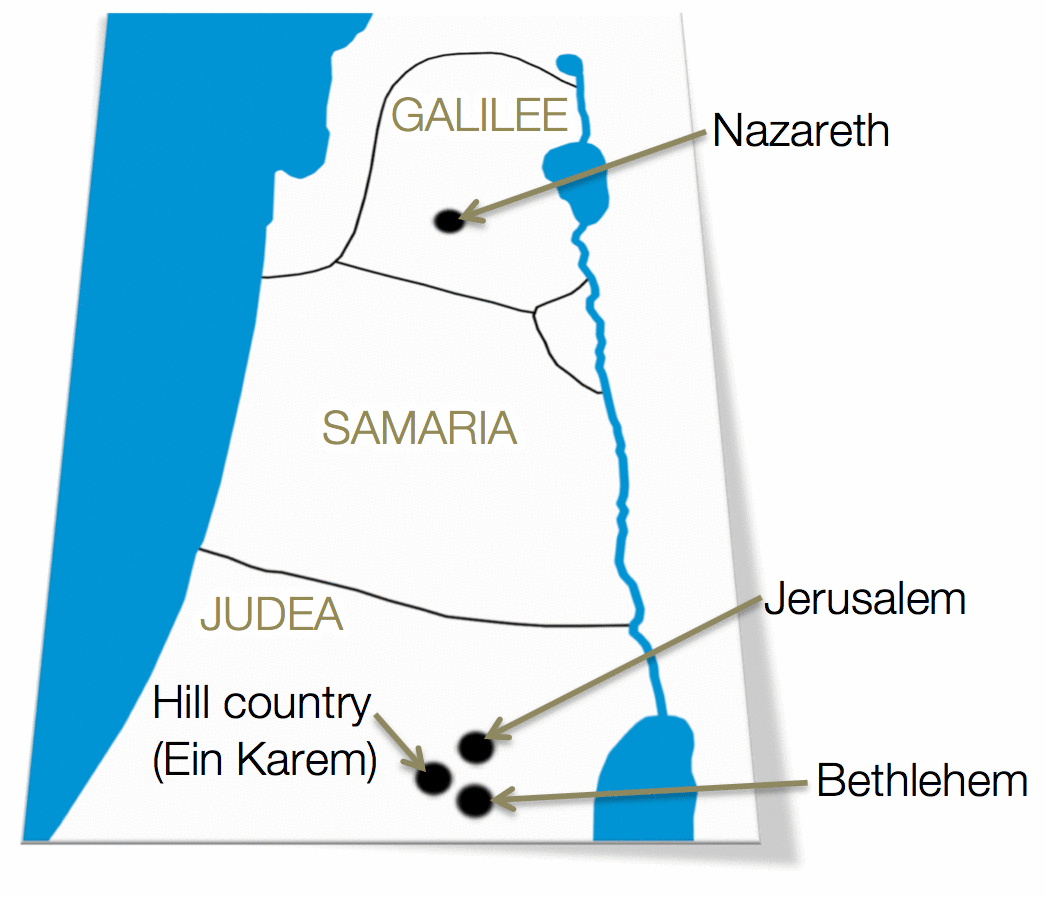- Oct 27, 2006
- 1,129
- 186
- Country
- Australia
- Faith
- Other Religion
- Marital Status
- Married
I think technically the Christmas stories can maybe be reconciled (explain all of the contradictions), but the most straight-forward explanation is that they can't (and so at least one of them was invented).
I wrote a book about this in 2017 which can be read for free online.
Here is the main website:
An Uncensored Guide to the Christmas Stories
There are many aspects to this, but for now I'll just talk about the journeys and the genealogies.
The journeys:
An Uncensored Guide to the Christmas Stories
These involve two prophecies - that Jesus would come from Bethlehem and that Jesus would come from Nazareth.
In Matthew they start in a house in Bethlehem, then when Jesus is about two years old they flee to Egypt, then later they decide to go to Nazareth since Archelaus was reigning in Judea (Bethlehem).

In Luke they start in Nazareth, Mary goes to the Hill country, then Mary comes back to Nazareth, then Joseph and Mary go to Bethlehem because of a census. Then within the next few weeks they go to Jerusalem then soon go back to Nazareth.

I believe that Jesus might have historically come from Nazareth but maybe the stories about Bethlehem were added later.
Also:
"In John 7:41-42, people in a crowd say that Jesus isn't the Messiah because he comes from Galilee [Nazareth] rather than Bethlehem"
No-one, including the author of John corrects this belief that Jesus wasn't from Bethlehem.
About the genealogies:
The Genealogies of Jesus
This involves some prophecies:
Jesus would be a descendent of Abraham, King David, and governor Zerubbabel and his father Shealtiel.
The genealogies only agree that Jesus was a descendent of Joseph, Zerubbabel and his father Shealtiel, King David, Abraham, and the ancestors of King David (the OT would be their source)
But they completely disagree on the ancestors of Joseph, Shealtiel, and the descendents of David and Zerubbabel... in the diagram you can see that they have in common Joseph, Zerubbabel, Shealtiel, and David...
To me it seems like they started with those involved in the prophecies, then made it "historical" by filling in the gaps.
The most common explanation with Christians these days is that one was a genealogy of Mary... even though Elizabeth is a relative of Mary, and Elizabeth was related to Moses' brother, Aaron, who is not a relative of King David.
Also that doesn't explain Shealtiel's different fathers.
I wrote a book about this in 2017 which can be read for free online.
Here is the main website:
An Uncensored Guide to the Christmas Stories
There are many aspects to this, but for now I'll just talk about the journeys and the genealogies.
The journeys:
An Uncensored Guide to the Christmas Stories
These involve two prophecies - that Jesus would come from Bethlehem and that Jesus would come from Nazareth.
In Matthew they start in a house in Bethlehem, then when Jesus is about two years old they flee to Egypt, then later they decide to go to Nazareth since Archelaus was reigning in Judea (Bethlehem).

In Luke they start in Nazareth, Mary goes to the Hill country, then Mary comes back to Nazareth, then Joseph and Mary go to Bethlehem because of a census. Then within the next few weeks they go to Jerusalem then soon go back to Nazareth.

I believe that Jesus might have historically come from Nazareth but maybe the stories about Bethlehem were added later.
Also:
"In John 7:41-42, people in a crowd say that Jesus isn't the Messiah because he comes from Galilee [Nazareth] rather than Bethlehem"
No-one, including the author of John corrects this belief that Jesus wasn't from Bethlehem.
About the genealogies:
The Genealogies of Jesus
This involves some prophecies:
Jesus would be a descendent of Abraham, King David, and governor Zerubbabel and his father Shealtiel.
The genealogies only agree that Jesus was a descendent of Joseph, Zerubbabel and his father Shealtiel, King David, Abraham, and the ancestors of King David (the OT would be their source)
But they completely disagree on the ancestors of Joseph, Shealtiel, and the descendents of David and Zerubbabel... in the diagram you can see that they have in common Joseph, Zerubbabel, Shealtiel, and David...
To me it seems like they started with those involved in the prophecies, then made it "historical" by filling in the gaps.
The most common explanation with Christians these days is that one was a genealogy of Mary... even though Elizabeth is a relative of Mary, and Elizabeth was related to Moses' brother, Aaron, who is not a relative of King David.
Also that doesn't explain Shealtiel's different fathers.
Last edited:
